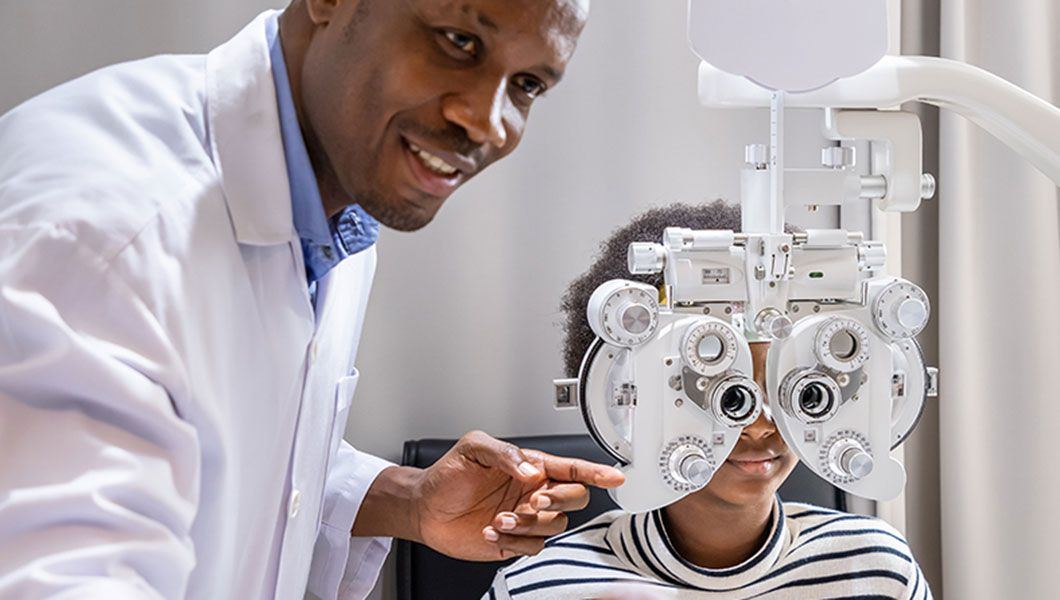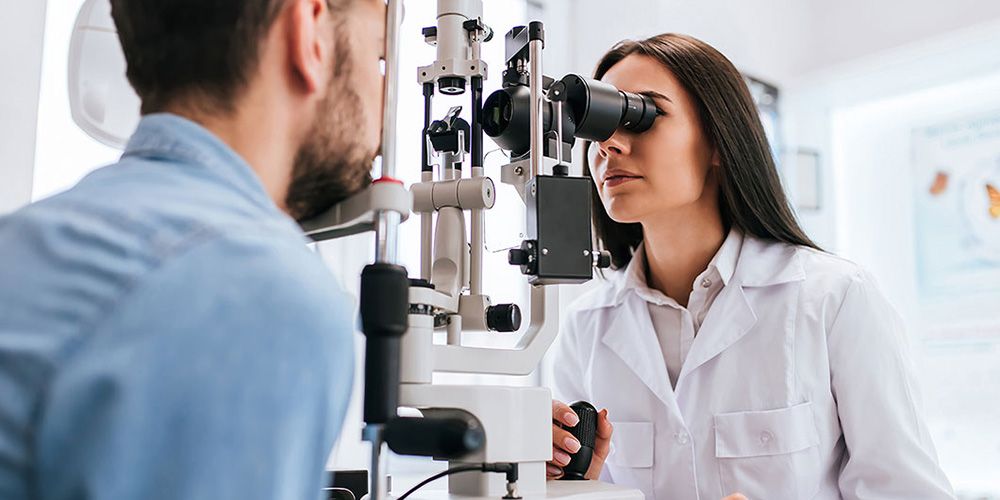As medical students consider careers in the health care field, they might be interested in training as a physician who provides eye care services. In this field, there are two unique career paths of ophthalmology and optometry. Both help patients with ongoing eye health.
There are multiple types of providers when it comes to eye and vision care. Each member of the eye care team plays an important role, but they maintain differing areas of expertise and perform distinctly different duties. For example, it’s easy to confuse the roles of an ophthalmologist vs. optometrist. There are many differences between an Ophthalmologist and an Optometrist including training, and the types of work they do with eye patients.
What is an Optometrist?
Optometrists typically serve as the first line of care for a patient’s eye health. It is the person you would typically see for annual eye exams. They provide primary vision care ranging from vision testing and correction to diagnosis, treatment, and management of vision changes. Unlike medical doctors, optometrists do not attend med school. Rather, they receive a Doctor of Optometry (OD) degree after completing four years of optometry school.
What is an Ophthalmologist?
Ophthalmologists are medical doctors who treat, diagnose, and research various eye and vision diseases. They are able to do the same work as an Optometrist, but they also specialize in working with patients who have more complex conditions. To become qualified for this highly specialized area of practice, these physicians attend medical school to earn a Doctor of Medicine (MD) degree before becoming licensed to practice medicine and perform surgery.
Patients in search of eye care may also interact with opticians. These specialists are trained to design, verify, and fit eyeglass lenses and frames, contact lenses, and other devices used to correct eyesight. They do not test vision or write prescriptions for visual correction. Instead, opticians work with prescriptions provided by ophthalmologists or optometrists. To serve in this role, professionals must complete an optician training program, which can take about two years.

What does each one of them do?
Optometrist
Since they help patients managing ongoing eye and vision health, there are several responsibilities in optometry. The common service is providing comprehensive eye exams. However, they also prescribe corrective lenses, diagnose several eye conditions, provide vision therapy and fit and monitor contact lenses for patients.
Depending on the state, there are some services they can provide including laser procedures.. That is because in the United States, Optometrists have a scope of practice in each state.
With these different degrees of treatment and relationships with Ophthalmologist and are sometimes located in the same practice.
Ophthalmologist
As the most highly trained members of the greater eye care team, ophthalmologists are qualified to provide comprehensive eye care, including both medical and surgical treatments.
Their scope of work is broad, including eye examinations to the diagnosis and treatment of diseases. Ophthalmologists may also address visual complications that are caused by other conditions, such as diabetes, high blood pressure, or autoimmune diseases.
Patients may be referred for ophthalmologic care when dealing with any serious eye problem that will require surgery or specialized treatment.
Some patients are referred to ophthalmologists based on diagnoses received from their optometrists. But, in other cases, patients seek out ophthalmologic care in hopes of pinpointing the cause of uncomfortable symptoms — things like decreased or blurry vision, double vision, excessive tearing, loss of peripheral vision, or new “floaters” or flashes of light in their vision.
Ophthalmologists are trained to run a gamut of examinations and screenings to help diagnose vision disorders, from visual acuity and color blindness assessments to eye muscle and pupil constriction tests. They can also evaluate a patient’s peripheral vision and depth perception, and they perform funduscopic (back of eye) and front of eye exams to look for issues related to a patient’s retina, cornea, iris, and lens.
The work-life balance also draws many doctors toward ophthalmology. These specialists tend to work routine hours in hospitals, clinics, or private practices. Some ophthalmologists may even opt to focus on research-centric roles, working in academic settings.

How do you become an optometrist?
Students interested in pursuing a career in optometry have to prepare for school with prerequisites that include physiology and biology course. Like applying to medical school, students take an entrance exam called the Optometry Admission Test (OAT).
Once accepted, students attend four years of an Optometry Graduate School to earn a Doctorate of Optometry (OD). This degree is a combination of both course work and clinical rotations to get practice in the field.
How do you become an ophthalmologist?
As with all physician roles, if you seek to become an ophthalmologist, you must first earn a bachelor’s degree before completing a Doctor of Medicine (MD) program at an accredited medical school. You’ll then need to participate in an ophthalmology residency program, which takes about four years to complete.
Many ophthalmologists also opt to seek out sub-specialty fellowship opportunities after residency. Some examples of sub-specialization options within ophthalmology include:
- Ophthalmologic plastic surgery
- Pediatric ophthalmology
- Neuro-ophthalmology
- Ophthalmic pathology
- Cornea diseases
- Retinal diseases
Finally, ophthalmologists have the option to become board-certified in the field. Board certification is voluntary, but it demonstrates a physician’s commitment to quality education and training in ophthalmology. In fact, more than 90 percent of practicing ophthalmologists pursue board certification.
Envision a career in ophthalmology?
Although both play an important role, doctors who specialize in ophthalmology help implement and pursue innovations in the world of vision and eye care, making a sizable impact on the lives of their patients along the way. Now that you know more about this dynamic medical specialty and you’ve learned all the necessary details about becoming an ophthalmologist, you can set your sights on garnering the hands-on training you’ll need to be successful.
Most of your specialized ophthalmology training will take place during residency. That’s why it can be critical to set yourself up for success in securing the type of residency position you’re hoping for.
You can learn more about how to prepare by visiting our article “How to Land the Medical Residency You Want: 7 Criteria You’ll Be Evaluated On.”
This article was originally published in January 2021. It has since been updated to include information relevant to 2024.


